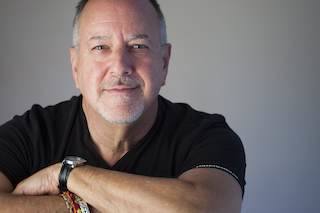Gary Malkin

Gary Malkin is a multiple Emmy award-winning composer, producer, public speaker, music & wellness consultant dedicated to harnessing music’s capacity to cultivate multi-dimensional coherence, especially during the most challenging transitions and phases of our lives. The composer/producer of the globally-acclaimed listening resource, Graceful Passages, (co-created with Michael and Doris Stillwater), creator of the successful Gaia streaming TV series, Islands of Inner Peace, & the co-creator of the widely respected caregiver audio series, Care for the Journey, Gary has just completed a fully realized stage musical about the miracle of birth and life with his collaborators, Lisa Rafel, and corporate leadership consultant, David Surrenda, Ph.D. called “Can You Hear Me? A story about sex, love and OMG Birth”. (www.CanYouHearMeTheMusical.com) Gary is a frequent guest on webinars where he introduces innovations in health, wellness, and personal/spiritual development. He is currently launching a new educational platform with spiritual guide, Hope Fitzgerald designed to help people cultivate resilience and grief literacy while mastering the art of change called You, Awake. (www.You-Awake.com) He collaborates with author/visionary, Sarah McCrum, on the creation of ‘transformances”, extemporaneously created immersive media resources for catalyzing coherence, holistic attention, and presence. A member of the Association for Transformational Leaders & The Evolutionary Leaders in good standing, Gary is committed to innovative ways in which deep listening to immersive arts resources can awaken higher states of unity consciousness. His websites are www.WisdomoftheWorld.com and www.You-Awake.com.
The Power of the Immersive Arts to Catalyze a More Peaceful World
Journal Article
“Immersive art forms have the power to deeply resonate and transform people. They intentionally combine experiential elements such as music, spoken word, and poignant imagery to catalyze proactive changes in our emotional, somatic, and spiritual states. When the need for compassion and tolerance is more important than ever before, it’s vital that we explore new ways to tap into these arts strategies.”
